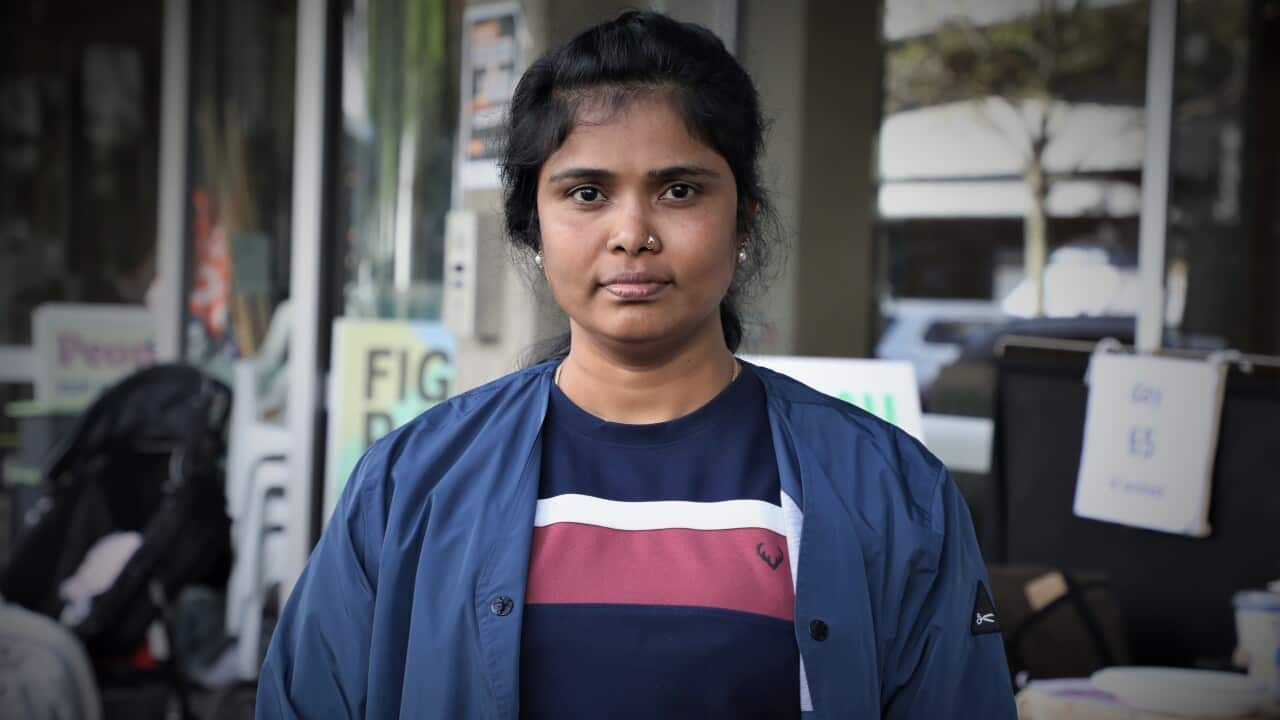Rathy Barthlote says she was only 28 when she was forced to flee her homeland.
Speaking to the SBS Examines podcast, Barthlote said she escaped Sri Lanka’s Tamil genocide with her husband and two-year-old daughter and arrived by boat to Australia in 2013.
Over a decade later, they are still waiting for the .
Barthlote applied for fast-track processing, which was introduced by the Coalition government in 2014.
The scheme was set up for 31,000 people who had arrived by boat before 2012, and those people were placed on temporary visas.
While around 19,000 were recognised as refugees, a significant backlog existed in the system, leaving many to grapple with the possibility of being forced to return to the countries they left.
However, that system was abolished in July this year, leaving thousands in limbo — still waiting for their visa status to be determined.
Barthlote paid thousands for her case to be heard in court. But the last update she received was almost three years ago.
“It’s very hard,” she said.
“I don’t know how long we are going to go like this. If we get a correct visa, we can live our life happily.”
The majority of those impacted come from Sri Lanka or Iran, according to Sanmati Verma, legal director at the Human Rights Law Centre.
Verma said the fast-track process was designed to see people fail.
“The mental pressure on people, the pressure on their families and their children, is absolutely inhuman and unspeakable,” she said.
Refugees call on the government to act
Refugees are calling on federal MPs to help those who have been left in “more than 12 years of limbo and uncertainty” in the wake of the fast-track system.
A delegation of refugees will arrive in Canberra on Tuesday to meet with MPs and urge the government to grant them permanent visas.
The representatives are part of a refugee protest movement that has been running for 86 days across Australia, with protest encampments in Melbourne, Sydney, Adelaide, Perth and Brisbane.
They are calling on the government to resolve the cases left behind, saying the fast-track system produced “unfair and legally incorrect decisions, caused extended delays, re-traumatised people and resulted in refugees being deported to countries where they face persecution and risk of serious harm”.
According to the Asylum Seeker Resource Centre (ASRC), approximately 8,500 people remain “in limbo”, including around 1,200 people who have still not seen decisions on their initial protection visa applications.
Elnaz, who is representing the Afghanistan community and Melbourne protest encampments, said she has been “unfairly discriminated against” by the fast-track process.
“As a Hazara woman with a PhD in cancer research, Australia is the only place where I can contribute meaningfully. I cannot return to my country, but here, I can make a difference by supporting Australian cancer patients,” she said.
“I ask for an end to this limbo so we can contribute fully and give back to this country.”
Jana Favero, head of Systemic Change at the ASRC, said the fast-track policy has “inflicted profound and lasting harm on people in need of protection and safety”.
Favero said that while Labor opposed the fast-track policy, “they need to stand by and honour that opposition by providing a pathway to permanency for those who have been failed by the flawed process”.
A spokesperson for the Department of Home Affairs told SBS Examines the government is focused on providing those who have been residing in Australia for long periods of time, a chance to continue their lives in the country with certainty and security.
They said an avenue for those waiting for permanent status has been provided.
